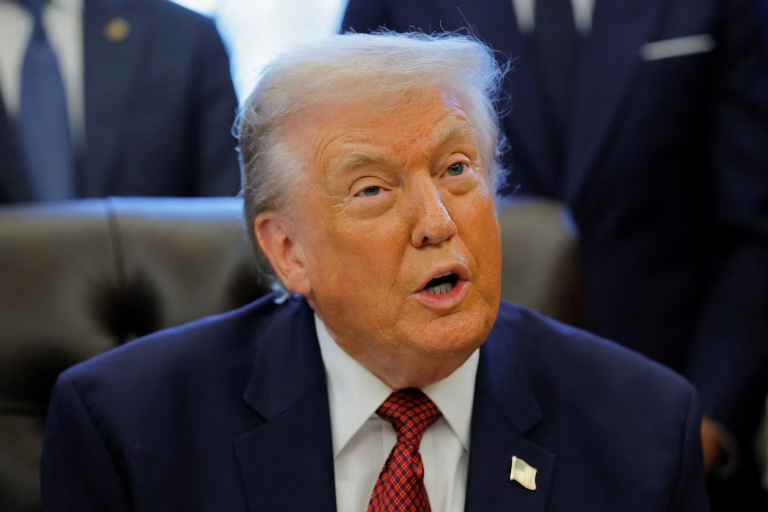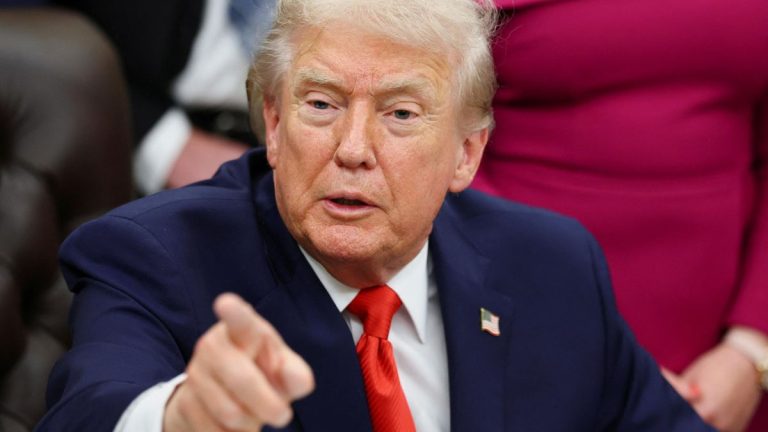When Senator J.D. Vance used the word traitor in reference to those who turned their backs on Donald Trump, it struck a nerve that went far beyond political commentary. The remark—made while criticizing individuals who once praised Trump but later condemned him—captured the deep emotional and ideological divides shaping modern American conservatism.
“It’s crazy how many of the people who were saying nice things about him on television a week before the election were basically accusing him of being a traitor a week after January 6 and then had to completely flip flop …” — J.D. Vance, New York Magazine
In that single sentence, Vance revealed both his irritation with perceived hypocrisy and his belief that political loyalty has become one of the most valuable, and volatile, forms of capital in Washington. His use of the word traitor wasn’t casual—it was a rhetorical weapon aimed at exposing what he sees as moral inconsistency within his own ranks.
The Power of a Word
Few words ignite more passion in the political arena than “traitor.” It’s a word steeped in the language of betrayal, loyalty, and moral absolutes. In American history, being branded a traitor was once reserved for those who committed acts of national treachery—spies, defectors, and those who sided with the enemy. Today, it has evolved into a broader term used to describe ideological disloyalty, particularly in the world of partisan politics.
Vance’s statement tapped directly into that evolution. By using traitor to describe those who flipped on Trump, he elevated political disloyalty to the level of moral betrayal. It wasn’t just about policy differences—it was about character, conviction, and identity. Within his framing, abandoning Trump after standing with him publicly was not merely a change of opinion; it was a betrayal of principles and people.
The potency of this language reflects how tribal American politics has become. In such a landscape, crossing lines—especially within one’s own party—is viewed not as a choice of conscience but as desertion.
A Mirror to the Movement
What makes Vance’s comment significant isn’t simply that he used the word “traitor,” but who he was referring to and why. He wasn’t speaking about Democrats or the media. His frustration was aimed squarely at those within the Republican ecosystem—figures who had once aligned with Trump publicly, only to reverse themselves when political winds shifted.
For Vance, this dynamic revealed a crisis of authenticity. His criticism implied that too many political figures are driven not by conviction but by calculation. They follow the energy when it’s popular and retreat when it becomes costly. The “flip flop,” as he put it, symbolized the hollowness of performative politics.
To Vance, loyalty to Trump wasn’t necessarily about personal allegiance—it was a litmus test for courage and consistency. In his view, the people who first courted Trump’s influence and then turned on him embodied the very opportunism that has long alienated voters from traditional political elites.
Loyalty as Ideological Currency
Loyalty in Trump-era politics has taken on an almost moral dimension. For many supporters, standing by Trump is seen not merely as supporting a candidate, but as defending a movement—one that claims to challenge corruption, bureaucracy, and the political establishment.
Vance’s remark crystallized this ethos. He was expressing a sentiment widely shared among Trump loyalists: that those who distanced themselves from Trump during moments of controversy weren’t motivated by ethics, but by self-preservation. To them, loyalty isn’t about blind devotion—it’s about trust and staying true to a cause that they believe represents ordinary Americans against entrenched elites.
In this environment, the accusation of being a “traitor” serves as a social and political verdict. It signals exclusion from the movement’s moral community. Those branded with it become symbols of betrayal—useful reminders of what happens when one prioritizes reputation over resolve.
The Psychology Behind the Statement
There’s a deeper emotional current running beneath Vance’s words. His frustration reflects a broader sense of exhaustion among those who see politics as a battlefield for conviction rather than convenience. When Vance said it was “crazy” how quickly people changed their stance, he was expressing a disillusionment with what he perceives as political cowardice.
In that sense, his comment wasn’t just an attack—it was a lament. The use of “traitor” was less about vengeance and more about disappointment, rooted in the belief that consistency should matter in leadership.
This sentiment resonates with many Americans who feel that politics has become dominated by double standards. Vance’s critique echoes the view that political courage is vanishing, replaced by cautious conformity and media-driven image management.
The Fallout of Moral Absolutes
Still, words like “traitor” come with consequences. They harden divisions, eliminate nuance, and reduce political debate to questions of loyalty rather than policy. For all its rhetorical power, the word risks deepening the fractures within the GOP and American politics at large.
By framing internal disagreement as betrayal, the political ecosystem becomes self-policing—rewarding conformity and punishing dissent. That may strengthen group unity in the short term, but it often silences productive disagreement in the long run.
Critics argue that this language fuels a zero-sum mentality, where the line between loyalty and tyranny blurs. Once ideological disagreement is equated with treason, there’s little room left for dialogue or compromise.
The Broader Message
Vance’s words, while sharp, also serve as a mirror reflecting the current political mood. His use of traitor reveals just how personal politics has become. It’s no longer just about policy or governance—it’s about identity and allegiance.
The remark resonates because it speaks to something larger than Trump or Vance. It captures a national anxiety about trust, consistency, and moral integrity in leadership. Americans have watched politicians change positions for decades, but the emotional intensity of recent years has transformed such shifts into acts of betrayal rather than adaptation.
In that light, Vance’s statement wasn’t just an outburst. It was a declaration of values—an insistence that loyalty and conviction still matter in a culture of expediency.
The Legacy of a Single Word
Ultimately, J.D. Vance’s invocation of traitor reflects a truth about political communication: one word can carry the weight of a movement. It can signal belonging or exile, courage or cowardice, unity or division.
In calling out hypocrisy, Vance didn’t just attack individuals—he exposed a fault line within the Republican Party and, by extension, American politics itself. His words remind us how powerful—and dangerous—language can be when used to define who is “in” and who is “out.”
Whether one agrees with his stance or not, the impact of that remark lingers. It forces a question that goes beyond Trump, Vance, or any political figure: what does loyalty mean in a democracy built on disagreement?
As politics continues to polarize, the word traitor will likely echo again—used by different voices, for different causes. But in this instance, it serves as both a warning and a reflection. A warning about the perils of moral absolutism, and a reflection of a political culture where loyalty, conviction, and authenticity are now the fiercest battlegrounds of all.

Emily Johnson is a critically acclaimed essayist and novelist known for her thought-provoking works centered on feminism, women’s rights, and modern relationships. Born and raised in Portland, Oregon, Emily grew up with a deep love of books, often spending her afternoons at her local library. She went on to study literature and gender studies at UCLA, where she became deeply involved in activism and began publishing essays in campus journals. Her debut essay collection, Voices Unbound, struck a chord with readers nationwide for its fearless exploration of gender dynamics, identity, and the challenges faced by women in contemporary society. Emily later transitioned into fiction, writing novels that balance compelling storytelling with social commentary. Her protagonists are often strong, multidimensional women navigating love, ambition, and the struggles of everyday life, making her a favorite among readers who crave authentic, relatable narratives. Critics praise her ability to merge personal intimacy with universal themes. Off the page, Emily is an advocate for women in publishing, leading workshops that encourage young female writers to embrace their voices. She lives in Seattle with her partner and two rescue cats, where she continues to write, teach, and inspire a new generation of storytellers.









